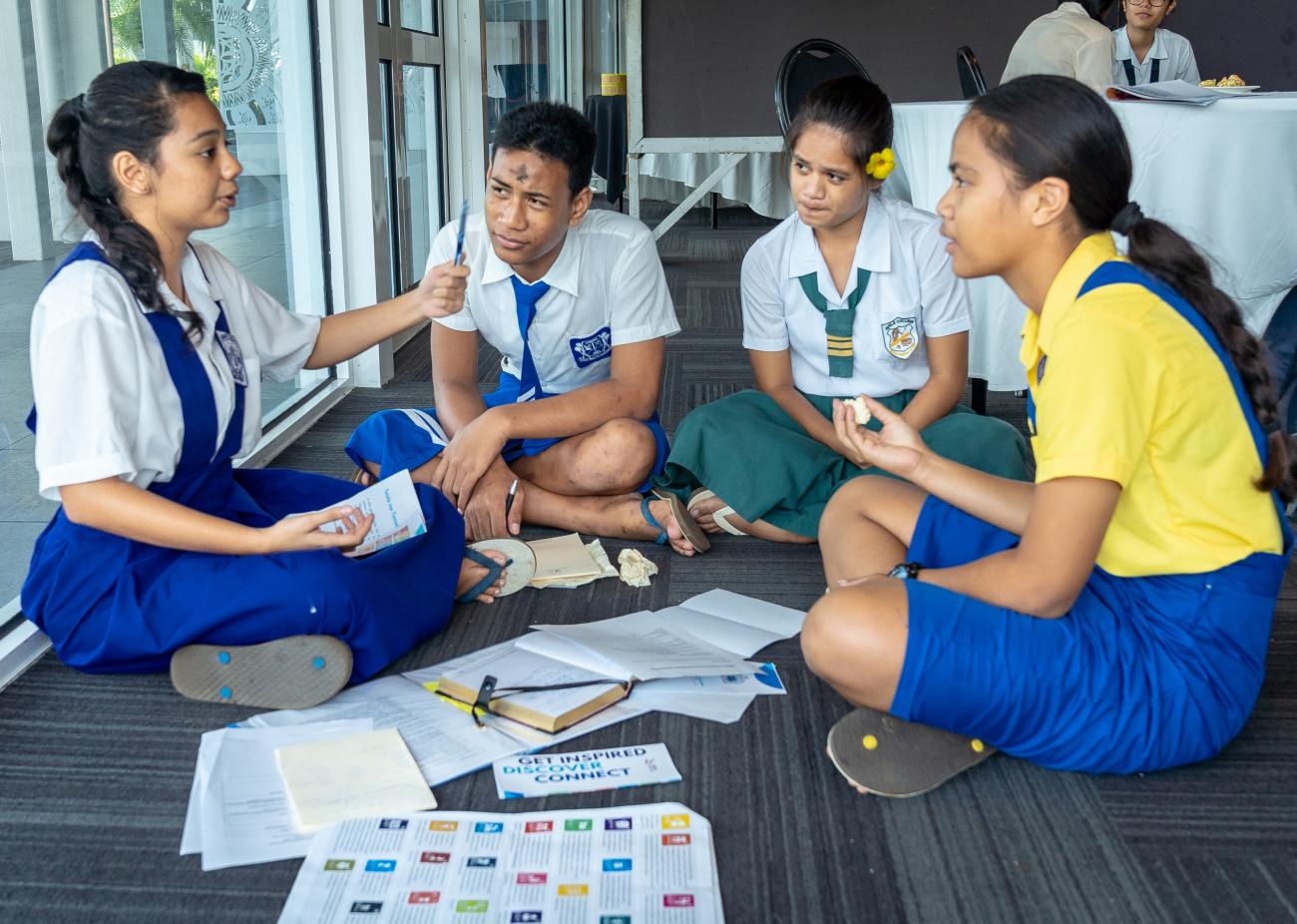Time to remove barriers over quality education for the Small Islands Developing States

Imagine a future of prosperity and peace on a healthy planet without a functional and highly performing education system everywhere and benefitting everyone.
With 147 million children missing half of their in-person instruction over the last two years and around 24 million never returning to school, our humanity is experiencing a deep learning crisis.
There is no substitute for good education and, as the challenges of our time continue to grow, it is impossible to imagine a future of prosperity and peace on a healthy planet without a functional, forward looking and highly performing education system everywhere and benefiting all people.
Recognizing the importance of investment in human capitals for countries to overcome the impact of multiple crises and restore growth and development, world leaders will gather at the ‘Transforming Education Summit’ (TES) that the UN Secretary-General will convene on 16, 17 and 19 September alongside the 77th UN General Assembly to mobilize political ambition, joint action, and solutions for a forward looking and adequately financed quality education system.
In preparation for the TES, with the assistance of the United Nations Country Teams, governments conducted in partnership with the civil society, academia, and the private sector nation-wide consultations to reimagine the education systems and equip young generations with the knowledge and the skills required to respond to existential threats and reverse the decline of the global system.
Due to their inherent vulnerabilities as identified in the development of the Multidimensional Vulnerability Index (MVI), Small Island Developing States (SIDS) are among countries most affected by the pandemic and the war in Ukraine. Supply chain disruptions and resulting shortages and high energy and food prices brought SIDS under high debt distress. The severely constrained fiscal space by declining tourism affected the capacity of SIDS governments to reform their education systems and provide viable solutions for remote learning. SIDS are among the countries with the highest number of days where no online teaching was possible while schools were fully closed because of COVID-19.
With rates of youth Not in Education, Employment or Training (NEET) among the highest in the world and limited income opportunities in domestic markets, SIDS labour migration to fill shortages in or beyond the region represents a structural necessity and a solution to end joblessness. As a result, remittances inflows fuel demand for and reliance on imported goods with no way out unless a breakthrough is made possible through redesigned education systems to enable digital transformation and economic diversification.
In Samoa and across the Pacific, poverty and suboptimal nutrition, domestic violence, teenage pregnancy, and the widening mismatch between the education and the labour market are key drivers of low learning performance, early school dropouts and high rates of youth NEET with the highest in Nauru (51.3%) followed by Kiribati (47.6%), Vanuatu (43.19) and Samoa (37.9%). Our recent analysis titled How Do Structural Vulnerabilities Impede Progress Towards Achieving SDG4 (Quality Education) in Small Island Developing States found a strong positive correlations between the public investment in education is inversely corelated with the youth NEET rates and the overall education outcomes.
To address the complex root causes of declining learning performance of children, the United Nations in Samoa mobilized significant resources from the Joint SDG Fund and other instruments for a series of strategic interventions to introduce a social protection floor, end domestic violence including violence against children through the Spotlight Initiative, develop an Integrated National Financing Framework to improve management of development financing and, very importantly, transform Samoa into a knowledge society.
The latter programme titled Samoa-Knowledge Society Initiative (SKS-I) jointly implemented by UNDP and UNESCO generated critically needed digital resources such as a free-access digital library, a lifelong learning platform to enable continued learning using online solutions and an open research platform for academic partnerships in knowledge production for sustainable development.
To incentivize youth to continue education and acquire professional skills that give access to better paying jobs, the United Nations in the Pacific in its new Cooperation Framework 2023-2027 places greater emphasis on expanding investment in blue, green and circular economies, digital transformation and natural capital conservation. With resources from the Joint SDG Fund, an inventory of ecosystem services complemented by economic valuation is under implementation in Samoa, led by UNEP, UNESCAP and UNESCO, to diversify sources of growth and improve debt sustainability.
Access to nutritious food for better health and education outcomes is the main objective of the recently launched programme under the Joint SDG Fund development emergency modality to reimagine Samoa’s and other Pacific countries’ food systems with the assistance of FAO and WFP.
While considerable work is underway, SIDS progress towards the SDGs remains low unless access to financial means is facilitated including through the adoption of the MVI in 2022 in line with General Assembly resolution A/RES/76/203. Most importantly, redesigning social contracts including expanding access to adequately financed quality education remains a prerequisite for resilience in SIDS.


